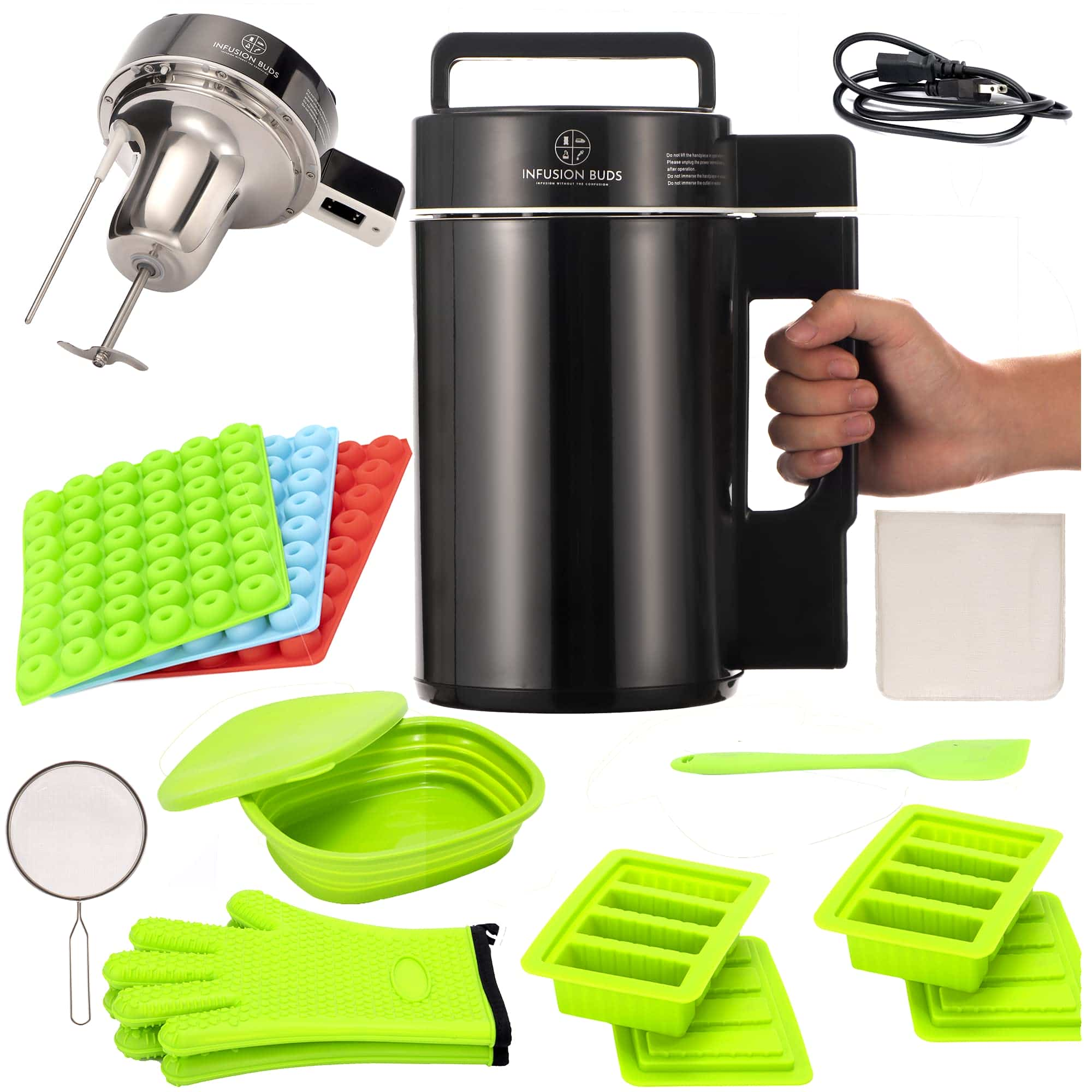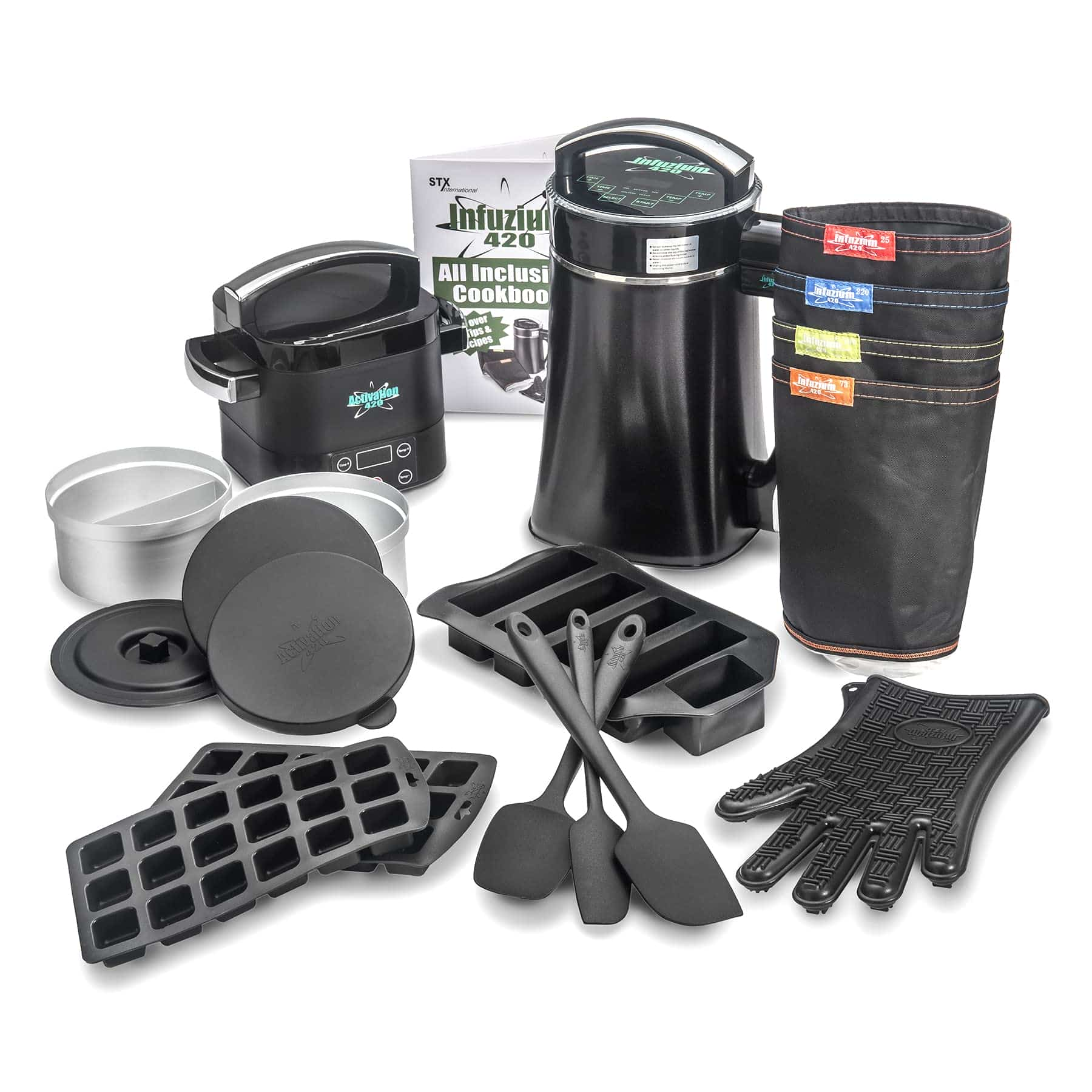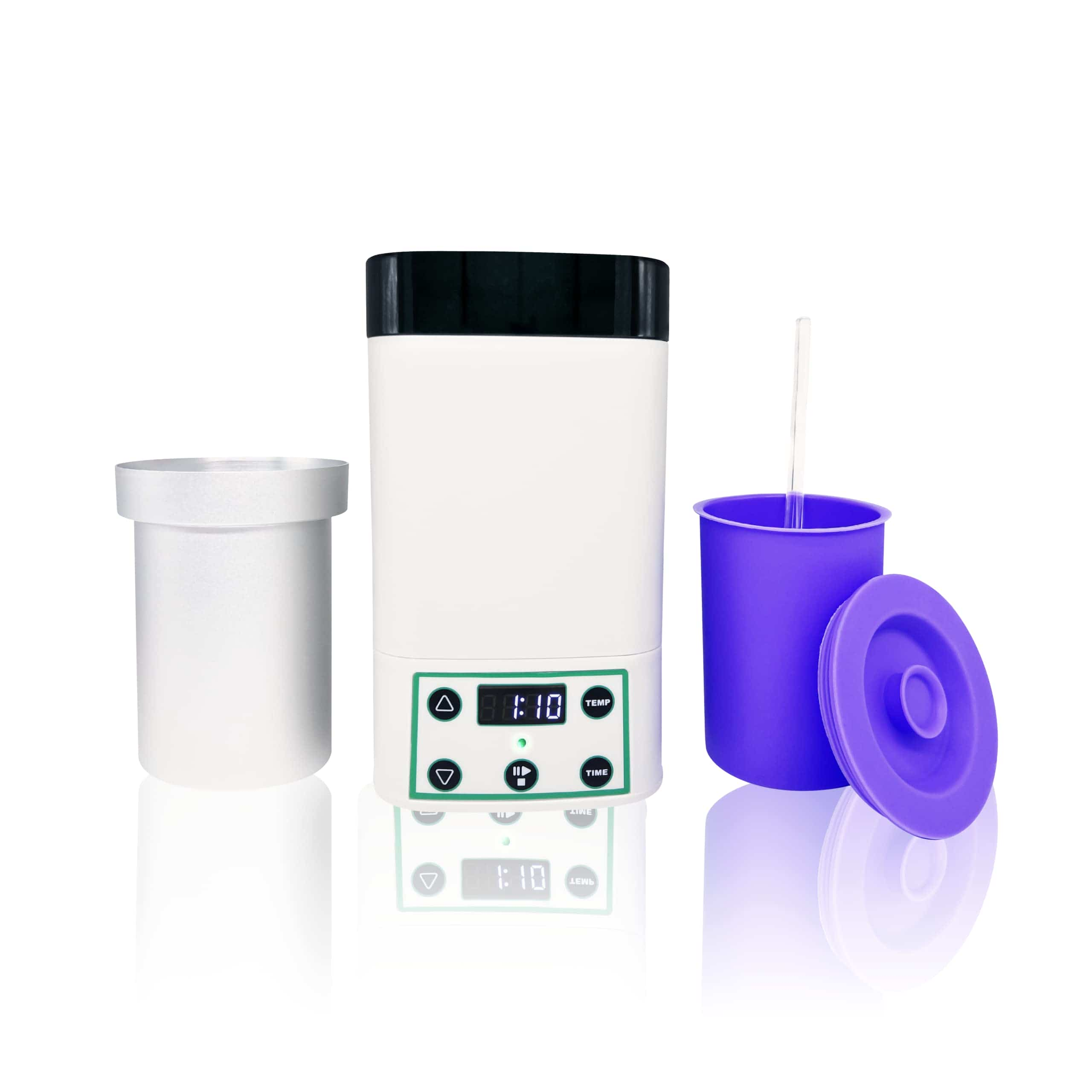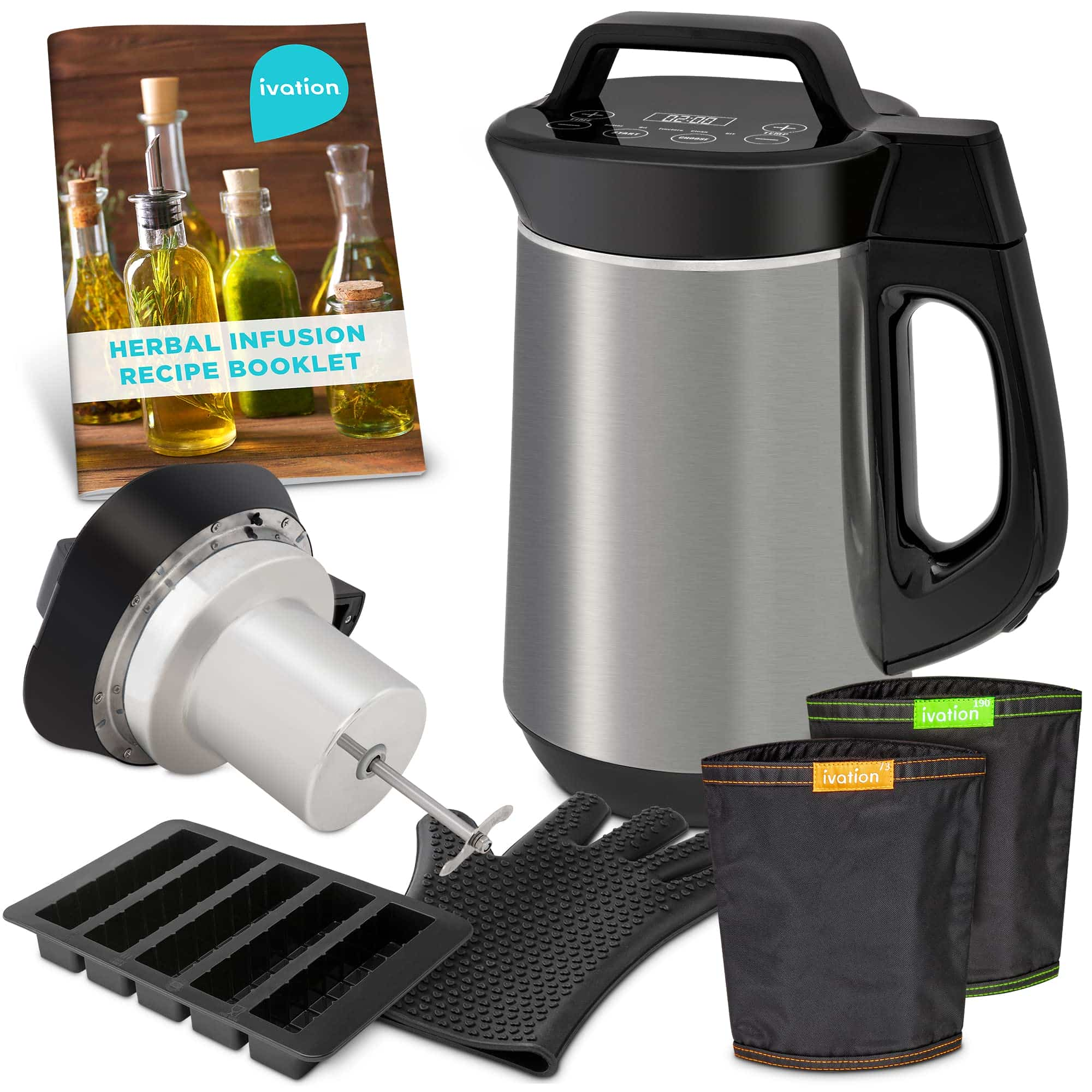Herbal Tea
Herbal Tea To Avoid When Pregnant
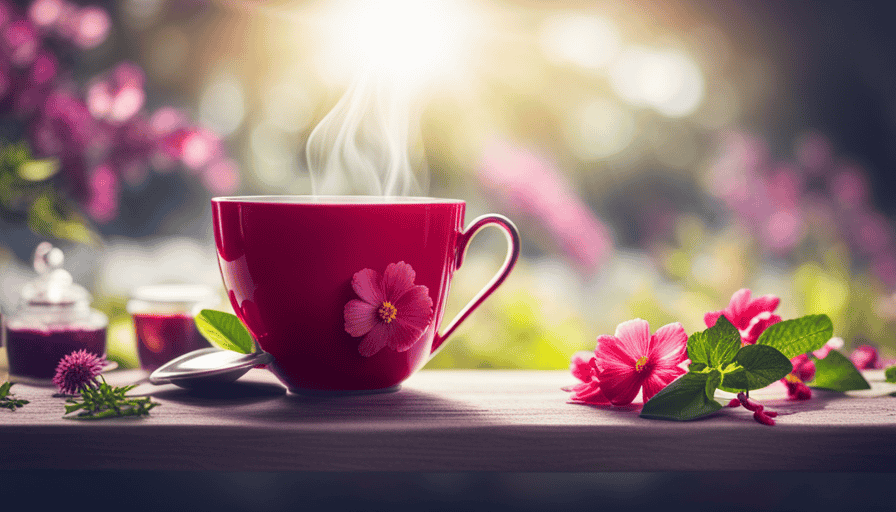
During my pregnancy, I was constantly searching for ways to stay healthy and nourish my growing baby. One of the things I turned to was herbal tea, hoping to find a soothing and beneficial drink.
However, I soon discovered that not all herbal teas are safe to consume during pregnancy. This realization came after a close friend shared her experience with me. She had unknowingly been drinking a herbal tea that was considered unsafe during pregnancy and experienced adverse effects as a result.
This made me realize the importance of being well-informed about herbal teas and their potential risks during pregnancy. In this article, we will explore the herbal teas that should be avoided during pregnancy, the potential risks and side effects of consuming unsafe herbal teas, and safer alternatives that can be enjoyed instead.
It is important to consult with your healthcare provider to ensure a healthy and safe pregnancy.
Key Takeaways
- Some herbal teas can stimulate the uterus and increase the risk of miscarriage or premature labor.
- Licorice root tea can elevate blood pressure and increase the risk of preeclampsia.
- Herbal teas with black cohosh or blue cohosh can cause hormonal imbalances and harm the fetus.
- Consult with a healthcare professional before consuming any herbal tea during pregnancy.
Importance of Safe Herbal Tea Consumption During Pregnancy
You need to be mindful of what herbal teas you consume during pregnancy to ensure the safety and well-being of both you and your baby, as certain herbal teas can be like a double-edged sword, either providing a soothing and nourishing experience or posing a potential risk.
It is important to note that not all herbal teas are created equal, and some may contain ingredients that can be harmful to pregnant women. However, there are safe herbal tea brands available that have been specifically formulated for pregnant women, and these can offer potential benefits during pregnancy.
Safe herbal tea brands often use ingredients that are known to be safe for pregnant women, such as chamomile, ginger, and peppermint. These ingredients have been traditionally used to alleviate common pregnancy symptoms like nausea, indigestion, and insomnia. Additionally, herbal teas can provide a comforting ritual and help to increase hydration, which is essential during pregnancy.
While herbal teas can offer potential benefits, it is important to be aware of certain herbal teas that should be avoided during pregnancy. Some herbal teas, such as those containing black cohosh, pennyroyal, or Dong Quai, have been associated with adverse effects during pregnancy, including an increased risk of miscarriage or preterm labor. Therefore, it is crucial to carefully read the labels and consult with your healthcare provider before consuming any herbal teas during pregnancy.
In the next section, we will discuss the herbal teas to avoid during pregnancy, providing you with important information to make informed decisions about your tea consumption.
Herbal Teas to Avoid During Pregnancy
Steer clear of those brews during your pregnancy, as they might not be the best choice for you right now. When it comes to herbal teas, there are a few options that should be avoided due to potential dangers they pose to pregnant women.
Here are three herbal teas that you should stay away from during pregnancy:
-
Caffeinated Herbal Teas: Although herbal teas are generally considered safe, some varieties may contain caffeine, which isn’t recommended during pregnancy. High levels of caffeine intake have been associated with an increased risk of miscarriage and preterm birth. It’s best to opt for caffeine-free herbal teas to ensure the safety of you and your baby.
-
Herbal Teas with Medicinal Herbs: Certain medicinal herbs commonly found in herbal teas, such as chamomile, ginger, and peppermint, may have uterine-stimulating effects. These teas should be avoided during pregnancy, especially during the first trimester when the risk of miscarriage is higher.
-
Herbal Teas with Unknown Safety Profiles: Some herbal teas have limited research on their safety during pregnancy. Since it’s important to be cautious, it’s best to avoid herbal teas that don’t have clear evidence of their safety for pregnant women.
Choosing safe herbal tea options is crucial during pregnancy to ensure the well-being of both you and your baby.
Now, let’s explore the potential risks and side effects of unsafe herbal tea consumption.
Potential Risks and Side Effects of Unsafe Herbal Tea Consumption
Beware of the potential risks and side effects that come with consuming unsafe herbal teas during pregnancy. While herbal teas can have numerous health benefits, not all herbal teas are safe for pregnant women. It’s important to be cautious and informed about the potential risks associated with certain herbal teas.
Some herbal teas contain ingredients that can have adverse effects on pregnancy. For example, certain herbal teas like chamomile, peppermint, and ginger can stimulate the uterus and potentially lead to miscarriage or premature labor. Others, such as licorice root tea, can elevate blood pressure and increase the risk of preeclampsia. Additionally, herbal teas that contain herbs like black cohosh or blue cohosh can cause hormonal imbalances and potentially harm the developing fetus.
It’s crucial to consult with a healthcare professional before consuming any herbal tea during pregnancy. They can provide personalized advice based on your individual health history and pregnancy. They can guide you in making safe choices and suggest alternative options that can provide similar benefits without the potential risks.
Transitioning to safer alternatives to herbal teas during pregnancy allows you to still enjoy flavorful and soothing drinks without compromising your health or the health of your baby.
Safer Alternatives to Herbal Teas During Pregnancy
During pregnancy, it’s important to be cautious about the types of herbal teas consumed. While some herbal teas may be unsafe for pregnant women, there are also several pregnancy-safe herbal teas that can be enjoyed.
Additionally, there are other beverages that are also safe and beneficial for pregnant women to consume.
Pregnancy-Safe Herbal Teas
If you’re expecting, there are plenty of herbal teas that are safe to enjoy during your pregnancy. It’s important to choose pregnancy-safe herbal tea brands that are free from any potentially harmful ingredients. Look for teas that are specifically labeled as safe for pregnant women.
These teas can provide various benefits for expecting mothers, such as reducing morning sickness, promoting relaxation, and aiding digestion. Some popular pregnancy-safe herbal teas include ginger tea, peppermint tea, and chamomile tea. Ginger tea can help alleviate nausea and vomiting, while peppermint tea can soothe an upset stomach. Chamomile tea is known for its calming properties and can help with sleeplessness.
Remember to always consult with your healthcare provider before incorporating any herbal teas into your pregnancy routine. As we explore other beverages to enjoy during pregnancy, it’s important to make informed choices that prioritize the health of both you and your baby.
Other Beverages to Enjoy During Pregnancy
Indulge in a variety of flavorful and refreshing beverages that are safe and enjoyable throughout your pregnancy journey. While herbal teas may have some potential risks, there are plenty of other options for you to enjoy.
Water is always a great choice to stay hydrated, and adding lemon or cucumber slices can make it more refreshing.
Fruit juices, such as orange or grapefruit, are packed with vitamins and can be a delicious alternative.
Milk or plant-based milk alternatives like almond or soy milk are also safe options.
If you’re looking for something warm, decaffeinated coffee or hot chocolate can satisfy your cravings.
Remember, it’s always important to consult your healthcare provider to ensure that any beverage you choose is a safer alternative during pregnancy. Transitioning into the next section, discussing this with your healthcare provider will provide you with personalized guidance and support.
Consulting with Your Healthcare Provider
Before you start sipping on any herbal tea, it’s essential to have a chat with your healthcare provider. They’ll be able to provide you with personalized advice based on your specific health needs and any potential risks associated with herbal tea consumption during pregnancy.
While herbal teas can offer various benefits, such as soothing digestive issues and promoting relaxation, it’s important to be aware of the potential risks they may pose to both you and your baby. Consulting with your healthcare provider will allow you to make informed decisions about which herbal teas are safe to consume during pregnancy.
To help you enjoy this conversation with your healthcare provider, here are some key points to consider:
- Discuss the specific herbal tea you’re interested in consuming and its potential benefits.
- Inquire about any potential risks or side effects associated with the herbal tea.
- Ask for recommendations on safe alternative beverages that can provide similar benefits.
By having this conversation, you can ensure that you’re making the best choices for your health and the well-being of your baby.
In the next section, we’ll explore some tips for choosing safe herbal teas during pregnancy.
Tips for Choosing Safe Herbal Teas During Pregnancy
When it comes to choosing safe herbal teas during pregnancy, there are a few key points to keep in mind.
First, it’s important to carefully read labels and ingredients to ensure that the tea doesn’t contain any potentially harmful herbs or additives.
Additionally, it’s best to avoid herbal tea blends with unknown ingredients, as they may pose a risk to both the mother and the baby.
Lastly, it’s crucial to research the specific herbs used in the tea and their potential effects on pregnancy, as some herbs may have contraindications or side effects.
Reading Labels and Ingredients
You’ll be amazed by the array of herbal teas out there, but be careful to read the labels and ingredients to avoid any potentially harmful ones during your pregnancy. It’s important to understand what you’re putting into your body, especially when you’re pregnant. When reading labels, look for teas that are specifically labeled as safe for pregnancy or those that are recommended by healthcare professionals. Avoid teas that contain ingredients such as caffeine, artificial sweeteners, or excessive amounts of certain herbs, such as chamomile or peppermint. To help you make informed choices, here’s a table that outlines some common herbal teas and their potential effects during pregnancy:
| Herbal Tea | Potential Effects During Pregnancy |
|---|---|
| Ginger | May help with nausea and digestion |
| Raspberry Leaf | May help strengthen the uterus |
| Dandelion | May act as a diuretic |
| Nettle | Rich in vitamins and minerals |
By understanding the labels and ingredients of herbal teas, you can make safer choices for you and your baby. However, it’s also important to avoid herbal tea blends with unknown ingredients to ensure the best possible outcomes for your pregnancy.
Avoiding Herbal Tea Blends with Unknown Ingredients
To ensure the utmost safety for your pregnancy, it’s advisable to steer clear of herbal tea blends that contain unfamiliar ingredients.
While herbal teas can offer benefits during pregnancy, it’s important to be cautious about what you consume. Some herbal tea blends may include ingredients that haven’t been thoroughly studied for their effects on pregnancy. These unknown ingredients could potentially pose risks to both the mother and the developing baby.
When selecting herbal tea blends during pregnancy, it’s essential to carefully read the labels and ingredients. Look for teas that clearly list all the ingredients used, and avoid blends that have unfamiliar or questionable ingredients. Opt for teas that are made from well-known and safe herbs such as ginger, peppermint, or chamomile. If you’re unsure about a particular ingredient, consult with your healthcare provider for guidance.
Researching herbs and their effects on pregnancy is the next important step in ensuring a safe and healthy pregnancy.
Researching Herbs and Their Effects on Pregnancy
Take the time to explore the wonders of nature’s remedies and uncover the hidden secrets of herbs in relation to your precious journey of motherhood. When it comes to researching the effects of herbs on pregnancy, it’s important to use reliable research methods to ensure the safety of herbal teas.
One way to do this is to consult reputable sources such as medical journals, books written by experts in the field, and trusted websites. These sources can provide valuable information about the potential risks and benefits of different herbs during pregnancy. By staying informed and educated, you can make informed decisions about which herbal teas are safe for you to consume during this special time in your life.
Now, let’s move on to discussing the guidelines for preparing and consuming herbal teas without compromising your health and the health of your baby.
Herbal Tea Preparation and Consumption Guidelines
When preparing and enjoying herbal tea, it’s important to keep in mind the specific guidelines for consumption during pregnancy. While herbal teas can provide various benefits, it’s crucial to exercise caution and ensure their safety.
Some herbal teas may contain ingredients that could potentially harm the developing fetus or disrupt hormonal balance. Therefore, it’s essential to research and choose herbal teas that are considered safe for pregnancy.
To prepare herbal tea, start by boiling water and then steeping the herbs for the recommended amount of time. The general guideline is to use one teaspoon of dried herbs or one tablespoon of fresh herbs per cup of water. However, it’s always best to consult with a healthcare provider or herbalist to ensure the correct dosage and preparation method for specific herbs.
When consuming herbal tea during pregnancy, it’s advisable to limit intake to one to two cups per day. This helps to minimize any potential risks while still allowing you to enjoy the benefits of herbal teas. Additionally, it’s important to avoid certain herbal teas altogether, such as those containing high levels of caffeine or herbs known to stimulate uterine contractions.
Moving forward, let’s explore the benefits of herbal teas during pregnancy and how they can support overall well-being for expectant mothers.
Benefits of Herbal Teas During Pregnancy
During pregnancy, it’s important to make informed choices about what we consume, especially when it comes to herbal teas. Now that we’ve discussed the guidelines for preparing and consuming herbal teas, let’s explore the benefits and risks of incorporating them into our pregnancy journey.
Benefits:
-
Soothing: Herbal teas can provide a soothing effect on the body, helping to alleviate common pregnancy discomforts such as nausea and heartburn.
-
Hydration: Staying hydrated is crucial during pregnancy, and herbal teas can be a flavorful and healthy alternative to plain water.
-
Nutritional boost: Certain herbal teas, like red raspberry leaf tea, are rich in essential vitamins and minerals that support a healthy pregnancy.
-
Relaxation: Enjoying a warm cup of herbal tea can be a relaxing ritual that promotes overall well-being and stress reduction.
Risks:
-
Contamination: Some herbal teas may be contaminated with harmful substances, so it’s important to choose reputable brands and sources.
-
Unsafe herbs: Certain herbs can have adverse effects on pregnancy, such as stimulating uterine contractions or interfering with hormone levels. It’s crucial to avoid these herbs during pregnancy.
Transitioning into the subsequent section about ‘other considerations for a healthy pregnancy,’ it’s important to keep in mind that herbal teas are just one aspect of a holistic approach to pregnancy wellness.
Other Considerations for a Healthy Pregnancy
When it comes to having a healthy pregnancy, there are a few key points to consider. First and foremost, maintaining a balanced diet and ensuring proper nutrition is essential for both the mother and the developing baby.
Additionally, staying hydrated and monitoring fluid intake is crucial for overall well-being.
Lastly, regular exercise and sufficient rest are important for keeping the body strong and promoting optimal growth and development.
By paying attention to these factors, expectant mothers can give themselves and their babies the best chance at a healthy pregnancy.
Balanced Diet and Proper Nutrition
For a healthy and well-rounded pregnancy, make sure you maintain a balanced diet and prioritize proper nutrition. This is crucial for the development of your baby and to ensure your own well-being throughout the pregnancy journey.
Here are three essential aspects to consider when it comes to balanced diet and proper nutrition during pregnancy:
-
Importance of prenatal vitamins: Prenatal vitamins are specifically formulated to provide the necessary nutrients for you and your baby. They help bridge any nutritional gaps and support the healthy growth and development of your baby.
-
Maintaining a healthy weight during pregnancy: It’s important to gain weight at a steady and appropriate rate during pregnancy. Talk to your healthcare provider about your weight gain goals and make sure to follow a well-balanced diet to meet your nutritional needs without excessive weight gain.
-
Adequate intake of essential nutrients: Focus on incorporating a variety of nutrient-rich foods into your diet, including fruits, vegetables, whole grains, lean proteins, and dairy products. These foods provide essential vitamins, minerals, and antioxidants that support the health of both you and your baby.
Ensuring a balanced diet and proper nutrition sets a strong foundation for a healthy pregnancy. As we move on to the next section about hydration and fluid intake, it’s important to note that staying well-hydrated is equally important for your overall well-being during pregnancy.
Hydration and Fluid Intake
Maintaining proper hydration and ensuring adequate fluid intake throughout pregnancy is essential for supporting the overall health and well-being of both you and your developing baby. Staying hydrated helps in the transportation of nutrients, regulating body temperature, and preventing common pregnancy discomforts such as constipation and swelling.
Drinking enough fluids also plays a crucial role in the formation of amniotic fluid, which surrounds and protects the baby in the womb. Additionally, proper hydration promotes healthy blood circulation, reducing the risk of complications like preterm labor and low amniotic fluid levels.
It is recommended to drink at least 8-10 cups (64-80 ounces) of fluid per day, including water, milk, and 100% fruit juice. However, it is important to avoid excessive caffeine intake, as it can dehydrate the body.
Transitioning to the next section, regular exercise and rest are equally important for a healthy pregnancy.
Regular Exercise and Rest
Ensuring proper hydration is essential during pregnancy, but it’s not the only factor that contributes to a healthy gestation. Regular exercise and rest also play crucial roles in promoting overall well-being for both the mother and the baby.
Staying physically active helps improve circulation, maintain a healthy weight, and reduce the risk of gestational diabetes. Engaging in low-impact exercises like walking, swimming, or prenatal yoga can have numerous benefits. However, it’s important to consult with a healthcare professional to determine the most suitable exercise regimen.
Equally important is getting enough rest and prioritizing sleep. Adequate rest allows the body to recover and rejuvenate, reducing the risk of pregnancy complications and promoting optimal fetal development.
In conclusion, while hydration is vital, incorporating regular exercise and rest into a pregnancy routine is equally important for a healthy and successful pregnancy journey.
Conclusion and Final Thoughts
To make sure you’re keeping yourself and your baby safe, it’s crucial to be mindful of the herbal teas you consume during pregnancy. While some herbal teas can be a great addition to a healthy pregnancy diet, there are certain ones that should be avoided due to potential risks.
It’s important to note that not all herbal teas are safe for consumption during pregnancy, as some may contain ingredients that could be harmful to you or your baby.
When it comes to safe herbal tea options during pregnancy, it’s best to stick with those that are known to be pregnancy-friendly. Chamomile tea, for example, is generally considered safe and can help with relaxation and sleep. Peppermint tea is another good option, as it can help ease digestive discomfort and nausea, which are common during pregnancy.
On the other hand, there are herbal teas that should be avoided altogether. Some teas, such as black cohosh, blue cohosh, and pennyroyal, have been associated with potential risks, including miscarriage and preterm labor. It’s always best to err on the side of caution and consult with your healthcare provider before consuming any herbal tea during pregnancy.
It’s important to be aware of the potential risks of herbal tea consumption during pregnancy. While some herbal teas can be safe and beneficial, others may pose a risk to you and your baby. It’s always best to consult with your healthcare provider to ensure you’re making the best choices for a healthy pregnancy.
Frequently Asked Questions
Can I have any herbal tea during pregnancy or are all herbal teas unsafe?
Are all herbal teas unsafe during pregnancy? While there are certain herbal teas to avoid, many can provide benefits. Some herbal teas, like ginger and peppermint, can help with nausea and indigestion, while chamomile can promote relaxation. It’s important to consult with your healthcare provider before consuming any herbal tea during pregnancy. If you’re unsure, there are also alternative options such as caffeine-free black or green tea that can be enjoyed in moderation.
Are there any specific herbal teas that are safe to drink during pregnancy?
There are several safe herbal tea options during pregnancy that can provide benefits. Chamomile tea is known for its calming properties and can help with sleep and relaxation. Ginger tea can help with nausea and morning sickness. Peppermint tea can aid in digestion and relieve bloating. Rooibos tea is caffeine-free and rich in antioxidants.
However, it’s important to consult with a healthcare professional before consuming any herbal tea during pregnancy to ensure its safety and suitability for your specific circumstances.
What are the potential risks and side effects of consuming unsafe herbal teas during pregnancy?
During pregnancy, it’s important to be aware of the potential risks and side effects of consuming unsafe herbal teas. One interesting statistic is that approximately 20% of pregnant women consume herbal teas without knowing the potential harm they can pose.
Some common side effects of unsafe herbal teas during pregnancy include gastrointestinal upset, allergic reactions, and interference with certain medications. Additionally, there’s a risk of miscarriage, preterm labor, and developmental issues for the baby.
Therefore, it’s crucial to consult with a healthcare professional before consuming any herbal teas during pregnancy.
Can I substitute herbal tea with other beverages during pregnancy?
During pregnancy, it’s important to be cautious about the type of herbal tea you consume. However, there are several safe and beneficial substitutes for herbal tea.
Drinking warm water with lemon can provide hydration and a refreshing taste. Additionally, ginger tea can help with nausea and soothing digestion. Other options include chamomile tea for relaxation and peppermint tea for relieving indigestion.
It’s always best to consult with your healthcare provider to ensure the safety of any beverage during pregnancy.
Is it necessary to consult with a healthcare provider before consuming herbal teas during pregnancy?
Consulting with a healthcare provider before consuming herbal teas during pregnancy is of utmost importance. Proper nutrition during pregnancy is crucial for the health of both the mother and the baby. While herbal teas can offer potential benefits, it is essential to ensure they’re safe and appropriate for pregnancy. Healthcare providers can provide guidance based on individual health needs and potential risks associated with specific herbal teas. This ensures that pregnant women make informed choices that support their overall well-being.
Conclusion
In conclusion, it’s crucial for pregnant women to be mindful of the herbal teas they consume. By avoiding certain herbal teas that may pose potential risks and side effects, we can ensure a healthy and safe pregnancy. Instead, opt for safer alternatives recommended by your healthcare provider.
Remember, a cup of comforting herbal tea can be a delightful addition to your routine, but always prioritize the well-being of you and your baby. So, sip on, mama, and let the soothing warmth of a safe herbal tea embrace you during this beautiful journey.
Arf, an author and an innovative enthusiast of coffee, coffee alternatives, and tea, plays a crucial role as a contributor to the esteemed Cappuccino Oracle platform. Renowned for his curiosity and passion for these captivating beverages, Arf has carved out a unique space for himself in the world of exploration and writing. He realized that coffee, coffee alternatives, and tea are not mere drinks to keep one awake, but universes of flavors and stories waiting to be explored.
Arf’s articles for Cappuccino Oracle blend meticulous research with personal experiences, providing readers with an in-depth understanding of various types of coffee, coffee alternatives, and tea, along with their unique characteristics, cultures, and histories. His honest reviews and engaging narratives guide readers on their own journeys, helping them discover their preferences and find their perfect brew.
Herbal Tea
Soothing Secrets of Herbal Tea
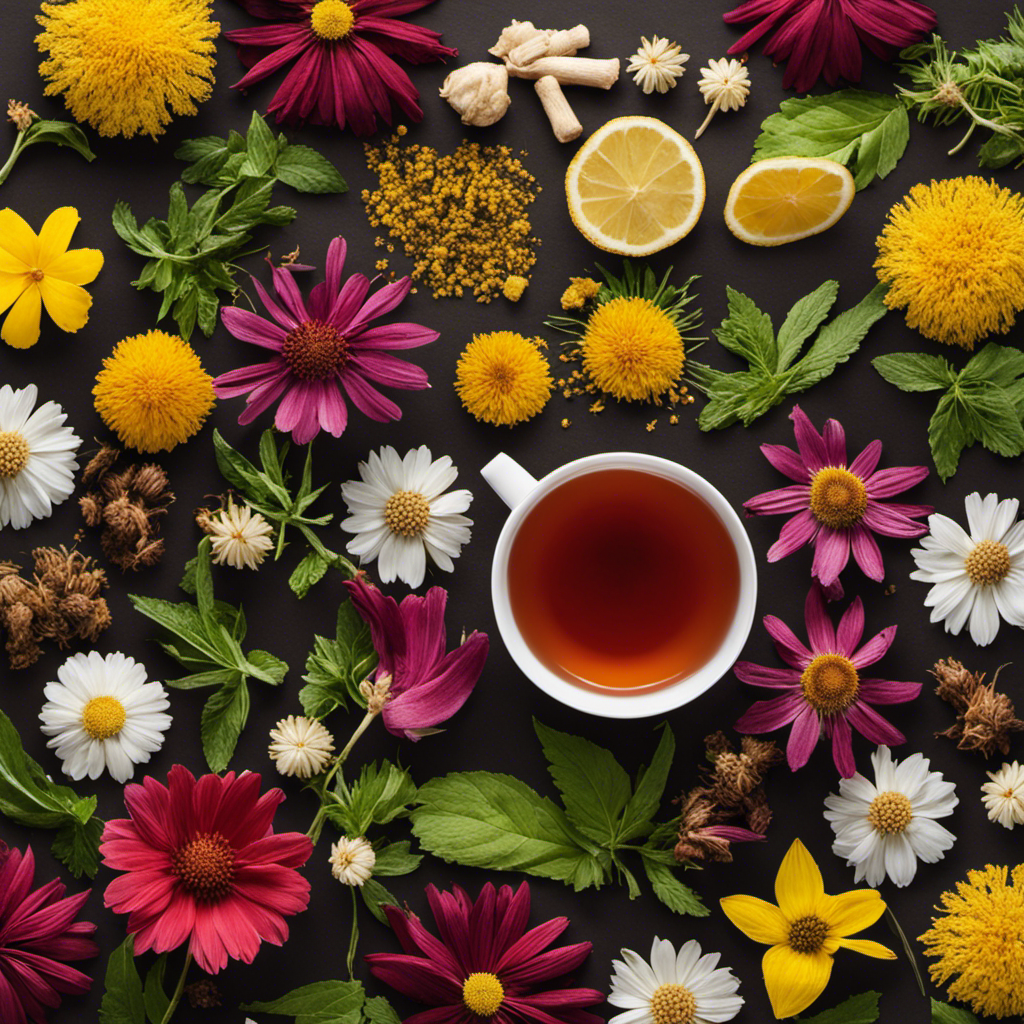
As a tea enthusiast, I have always been intrigued by the calming benefits of herbal tea. From chamomile to peppermint, hibiscus to ginger, and echinacea to dandelion, these teas provide distinct properties that address specific needs.
Whether you’re seeking relaxation, healing, or a boost in immunity, herbal teas have it all. In this article, we’ll explore the benefits of chamomile tea, the digestive powerhouse of peppermint tea, and so much more.
So grab a cup, sit back, and let’s uncover the comforting world of herbal tea together.
Key Takeaways
- Chamomile tea promotes relaxation and reduces anxiety, making it a great option for those seeking a sense of calmness.
- Peppermint tea aids in digestion and provides relief from stomach issues such as spasms and cramps.
- Hibiscus tea improves heart health and boosts the immune system with its high vitamin C content.
- Ginger tea soothes nausea and reduces inflammation in the body, offering long-term benefits for overall well-being.
The Soothing Benefits of Chamomile Tea
I love how chamomile tea soothes my mind and helps me relax after a long day. Chamomile tea is well-known for its calming effects on the body and mind. It has been used for centuries to promote relaxation and reduce anxiety.
Research has shown that chamomile tea contains compounds that bind to certain receptors in the brain, promoting a sense of calmness and tranquility. In addition to its soothing properties, chamomile tea also offers other health benefits. It can help with sleep disorders, digestive issues, and even skin conditions.
This herbal tea is packed with antioxidants and anti-inflammatory compounds that support overall well-being. Whether you’re looking to unwind after a stressful day or improve your sleep quality, a cup of chamomile tea can be a nurturing and soothing addition to your routine.
Peppermint Tea: A Digestive Powerhouse
Peppermint tea, with its refreshing flavor and soothing properties, is known as a digestive powerhouse that can help relieve bloating and improve overall digestion. Here are three key reasons why peppermint tea is a great choice for those seeking digestive relief:
-
Anti-inflammatory properties: Peppermint tea contains menthol, which helps relax the muscles of the gastrointestinal tract, reducing inflammation and easing digestion.
-
Calming effect: The natural compounds in peppermint tea have a relaxing effect on the stomach, reducing spasms and cramps that can cause discomfort.
-
Bloating relief: Peppermint tea has been shown to help alleviate bloating by reducing gas and promoting the passage of food through the digestive system.
By harnessing the healing properties of peppermint tea, individuals can find relief from digestive issues and enjoy improved overall well-being.
Now, let’s explore the next remarkable herbal tea – hibiscus tea – and its incredible healing benefits.
Harnessing the Healing Properties of Hibiscus Tea
By exploring the healing properties of hibiscus tea, individuals can uncover its potential for soothing and healing various ailments.
Hibiscus tea, derived from the vibrant and beautiful hibiscus flower, has been used for centuries in traditional medicine for its numerous health benefits. Packed with antioxidants, hibiscus tea has been shown to lower blood pressure, reduce inflammation, and improve heart health.
Additionally, its high vitamin C content boosts the immune system and aids in the prevention of illnesses. Incorporating hibiscus tea into your daily routine can be as simple as brewing a cup in the morning or sipping on it throughout the day.
Its naturally sweet and tart flavor makes it a refreshing beverage choice, and its potential healing power makes it a valuable addition to any wellness regimen.
Ginger Tea: Nature’s Remedy for Nausea and Inflammation
Ginger tea is a soothing and effective remedy for nausea and inflammation, often providing relief when consumed regularly.
As a natural remedy for motion sickness, ginger tea has been used for centuries to alleviate symptoms such as dizziness and nausea. It works by calming the stomach and reducing the feeling of queasiness.
Additionally, ginger tea is known for its ability to reduce inflammation in the body. This is due to the presence of gingerols, which have been shown to have anti-inflammatory properties. By reducing inflammation, ginger tea can help relieve symptoms associated with conditions such as arthritis and digestive disorders.
Regular consumption of ginger tea can provide long-term benefits for those seeking relief from nausea and inflammation.
Echinacea and Dandelion Teas: Boosting Immunity and Detoxification
I love drinking echinacea and dandelion teas because they boost my immunity and help detoxify my body. Echinacea tea is known for its immune-enhancing properties and can help prevent and fight off infections. Dandelion tea, on the other hand, acts as a natural diuretic, promoting detoxification by flushing out toxins from the body.
Incorporating these teas into my daily routine has had a positive impact on my overall well-being. To illustrate the benefits of echinacea and dandelion teas, I have prepared a table below:
| Tea | Boosting Immunity | Detoxification |
|---|---|---|
| Echinacea | Enhances immune function | Supports toxin removal |
| Dandelion | Strengthens immune system | Aids in detoxifying |
Frequently Asked Questions
Are There Any Potential Side Effects or Risks Associated With Drinking Chamomile Tea?
Drinking chamomile tea has potential side effects and risks. While generally safe, it can cause allergic reactions, interact with medications, and increase the risk of bleeding. It’s important to consult a healthcare professional before consuming chamomile tea.
How Does Peppermint Tea Help With Digestion and What Specific Digestive Issues Can It Alleviate?
Peppermint tea helps with digestion by soothing the digestive tract and relieving symptoms like bloating and gas. It can alleviate specific issues such as irritable bowel syndrome (IBS) and indigestion.
Can Hibiscus Tea Help Lower Blood Pressure and Improve Heart Health?
Hibiscus tea has many benefits, including potentially lowering blood pressure and improving heart health. Its natural properties make it a great addition to a healthy lifestyle. Consider incorporating hibiscus tea into your routine for these potential advantages.
What Are the Specific Health Benefits of Ginger Tea for Nausea and Inflammation?
Ginger tea is known for its soothing qualities and healing properties. It can provide relief from nausea and inflammation, making it a great choice for those with digestive issues or seeking inflammation relief.
How Do Echinacea and Dandelion Teas Support the Immune System and Aid in Detoxification?
Echinacea and dandelion teas support the immune system and aid in detoxification. They have unique properties that promote overall health. Their benefits include boosting immunity and helping the body eliminate toxins.
Conclusion
In conclusion, herbal teas such as chamomile, peppermint, hibiscus, ginger, echinacea, and dandelion offer a wide range of soothing, relaxing, and healing qualities.
Chamomile tea aids in sleep and relaxation, while peppermint tea promotes digestion.
Hibiscus tea harnesses healing properties, and ginger tea is a natural remedy for nausea and inflammation.
Echinacea and dandelion teas boost immunity and aid in detoxification.
Incorporating these teas into your daily routine can provide numerous health benefits.
So go ahead, sip on these herbal wonders and let nature work its magic.
Arf, an author and an innovative enthusiast of coffee, coffee alternatives, and tea, plays a crucial role as a contributor to the esteemed Cappuccino Oracle platform. Renowned for his curiosity and passion for these captivating beverages, Arf has carved out a unique space for himself in the world of exploration and writing. He realized that coffee, coffee alternatives, and tea are not mere drinks to keep one awake, but universes of flavors and stories waiting to be explored.
Arf’s articles for Cappuccino Oracle blend meticulous research with personal experiences, providing readers with an in-depth understanding of various types of coffee, coffee alternatives, and tea, along with their unique characteristics, cultures, and histories. His honest reviews and engaging narratives guide readers on their own journeys, helping them discover their preferences and find their perfect brew.
Herbal Tea
Why Is Herbal Tea Not Real Tea
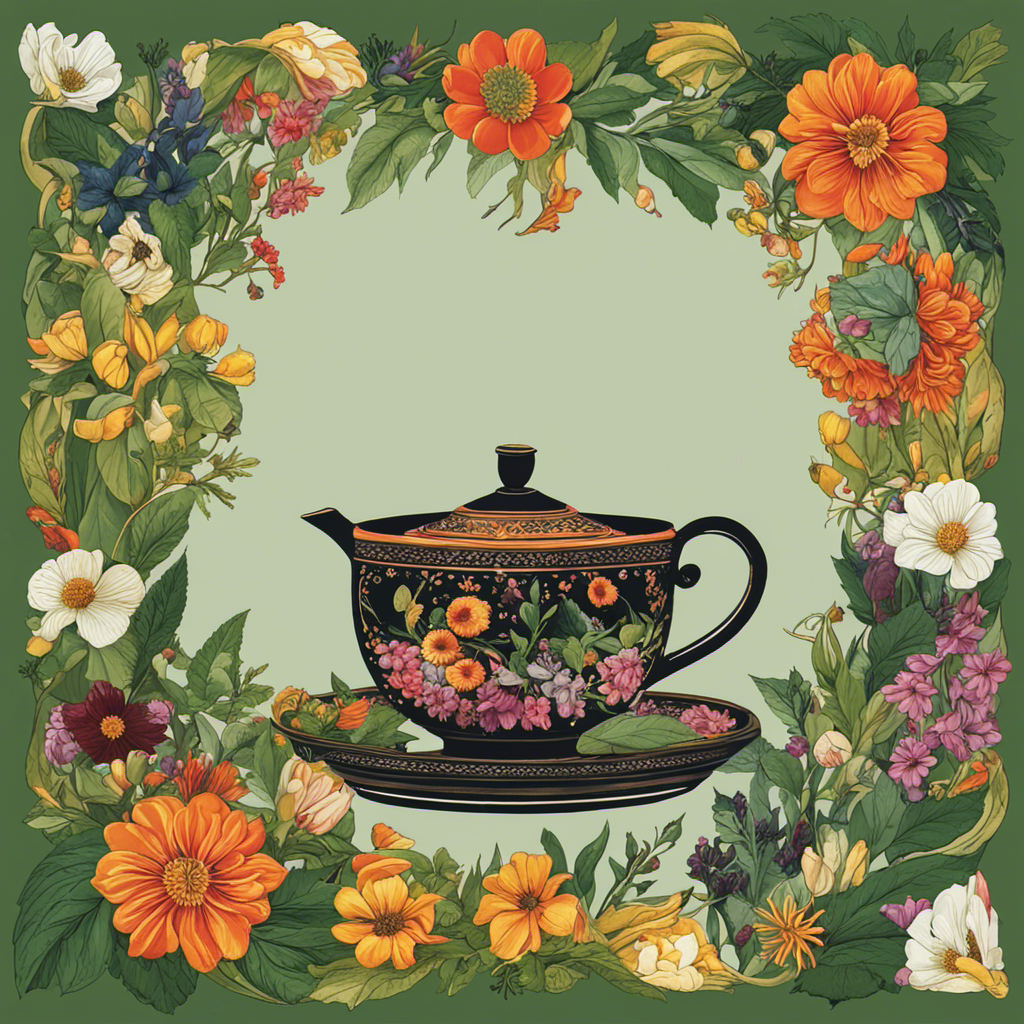
The adage, ‘Not all teas are created equal,’ perfectly encapsulates the world of herbal tea. It might come as a surprise to many that herbal tea doesn’t fall under the category of what’s traditionally recognized as ‘real’ tea. So, what’s the reason behind this? Allow me to explain it to you.
Traditional tea, such as black, green, or oolong, is derived from the leaves of the Camellia sinensis plant. It undergoes a specific process of oxidation and fermentation, which gives it that distinct flavor and caffeine content.
On the other hand, herbal tea is made from various plants, flowers, and herbs, like chamomile or peppermint, which are steeped in hot water. These herbal infusions offer a wide range of flavors and potential health benefits, but they lack the true tea leaves and caffeine found in traditional tea.
So, while herbal tea may not be classified as ‘real’ tea, it certainly has its own unique charm and allure.
Key Takeaways
- Herbal tea is not made from the Camellia sinensis plant.
- Herbal tea lacks true tea leaves and caffeine found in traditional tea.
- Herbal tea is made from various plants, flowers, and herbs.
- Herbal tea offers a wide range of flavors and potential health benefits.
The Difference Between Herbal Tea and Traditional Tea
There exists a discernible distinction between herbal tea and traditional tea. Traditional tea, also known as true tea, is made from the leaves of the Camellia sinensis plant. It includes varieties like green tea, black tea, oolong tea, and white tea.
On the other hand, herbal tea is not made from the Camellia sinensis plant but is instead made from a combination of herbs, flowers, fruits, and spices. This fundamental difference in ingredients leads to variations in taste, aroma, and health benefits.
Traditional tea contains caffeine and antioxidants, while herbal tea is typically caffeine-free and often offers unique therapeutic properties depending on the herbs used.
Both traditional tea and herbal tea have their own merits, but which one is better ultimately depends on individual preferences and health needs. Understanding traditional tea, however, provides a deeper insight into the world of tea beyond herbal alternatives.
Understanding Traditional Tea
When it comes to traditional tea, one must understand the importance of the Camellia sinensis plant. This plant is the foundation of all true teas, including green, black, white, and oolong teas.
Each of these teas is unique in its flavor, aroma, and health benefits, making traditional tea a fascinating and diverse world to explore.
The Camellia sinensis plant
You might be surprised to learn that the Camellia sinensis plant is the secret ingredient that gives real tea its authentic flavor and aroma. Cultivated in various regions around the world, including China, India, and Japan, the camellia sinensis plant is the foundation of traditional tea production.
The leaves of this plant are carefully harvested, processed, and brewed to create the different types of traditional tea that we enjoy. The specific cultivation methods, such as the climate, soil conditions, and altitude, all contribute to the unique characteristics of each tea variety.
From delicate white tea to robust black tea, the camellia sinensis plant is responsible for the vast array of flavors and aromas found in traditional tea. Transitioning into the subsequent section about different types of traditional tea, it’s fascinating to explore the diverse world of tea varieties and their distinct qualities.
Different types of traditional tea
Let’s delve into the fascinating realm of traditional tea and discover the diverse array of flavors and aromas that different types offer. Traditional tea, derived from the leaves of the Camellia sinensis plant, has a rich history and cultural significance that has been passed down through generations. There are several types of traditional tea, each with its own distinct characteristics and brewing techniques. To provide a visual representation of these ideas, I have created a table below:
| Type of Tea | Flavor Profile | Brewing Technique |
|---|---|---|
| Green Tea | Fresh, grassy | Steep at 175°F |
| Black Tea | Bold, robust | Steep at 212°F |
| Oolong Tea | Floral, fruity | Steep at 195°F |
These traditional teas have long been cherished for their unique tastes and aromas, and their brewing techniques vary to bring out the best in each type. Now, let’s explore the variety of herbal tea options and their distinctions in the subsequent section.
The Variety of Herbal Tea Options
When it comes to herbal tea, there’s a wide variety of options to choose from. These teas are made from plants, herbs, fruits, and spices. Each offers unique flavors and health benefits.
Whether it’s a calming chamomile, a refreshing peppermint, or a soothing lavender, there’s an herbal tea for every taste and need.
Plants, herbs, fruits, and spices used
Although herbal tea doesn’t contain tea leaves, it can still be enjoyed as a hot beverage made from various plants, herbs, fruits, and spices. Here are four examples of popular ingredients used in herbal teas:
-
Chamomile: Known for its calming properties, chamomile tea is often consumed before bed to promote a restful sleep.
-
Peppermint: With its refreshing and soothing qualities, peppermint tea is a popular choice for relieving digestive discomfort.
-
Hibiscus: This vibrant flower is used to create a tart and tangy herbal tea that’s rich in antioxidants.
-
Ginger: Known for its spicy and warming flavor, ginger tea is often enjoyed for its potential anti-inflammatory and digestive benefits.
These diverse ingredients not only provide unique flavors but also offer various health benefits.
Transitioning into the next section, let’s explore the incredible range of flavors and the potential health benefits herbal teas have to offer.
Unique flavors and health benefits
After discussing the various plants, herbs, fruits, and spices used in herbal tea, let’s now explore the unique flavors and therapeutic effects that make this beverage so popular.
One of the fascinating aspects of herbal tea is its wide range of flavors. From the refreshing taste of mint to the soothing aroma of chamomile, each herbal infusion offers a distinct and delightful experience for the taste buds. Not only do these flavors provide a pleasant sensory experience, but they also have therapeutic effects on the body.
For example, lavender tea is known for its calming properties, while ginger tea is often used to aid digestion. These health benefits make herbal tea a popular choice for those seeking a natural approach to wellness.
Now, let’s delve into the absence of caffeine in herbal tea and its impact on our bodies.
The Absence of Caffeine in Herbal Tea
When it comes to herbal tea, one key point to consider is the absence of caffeine. As someone who prefers to avoid caffeine, I appreciate having natural alternatives to choose from.
Not only does caffeine-free herbal tea provide a calming and soothing experience, but it also offers various health benefits, making it a great option for those looking for a refreshing and caffeine-free beverage.
Natural alternatives to caffeine
If you’re looking for a natural alternative to caffeine, herbal tea can be a great option for you. Here are some natural energy boosters that can help you reduce your caffeine intake:
-
Matcha Green Tea: This powdered tea is rich in antioxidants and contains a small amount of caffeine. It provides a gentle energy boost without the jitters.
-
Ginseng Tea: Ginseng is known for its ability to improve mental focus and increase energy levels. It can be a great caffeine-free alternative for those looking for a natural pick-me-up.
-
Peppermint Tea: Peppermint has a refreshing and invigorating effect. It can help increase alertness and provide a natural energy boost.
-
Rooibos Tea: This herbal tea is caffeine-free and packed with antioxidants. It can help reduce fatigue and promote overall well-being.
Incorporating these natural alternatives into your routine can be a great way to enjoy the benefits of caffeine-free options.
Benefits of caffeine-free options
By incorporating natural alternatives to caffeine into your routine, you can enjoy the numerous benefits of opting for caffeine-free options. Not only do these alternatives provide a healthier way to stay energized, but they also offer additional wellness benefits. One popular option is herbal tea, which is a flavorful and soothing alternative to traditional tea. Herbal teas are caffeine-free and can be enjoyed throughout the day without the worry of disrupting your sleep or causing jitters. They come in a variety of flavors and blends, each with its own unique health properties. For example, chamomile tea is known for its calming effects, while peppermint tea can aid digestion. By exploring the world of caffeine-free alternatives, you can find a herbal tea that suits your taste and supports your overall well-being. Transitioning into the next section, herbal tea can also be a great relaxation aid.
Herbal Tea as a Relaxation Aid
Herbal tea is a fantastic relaxation aid due to its calming and soothing properties. It can help to calm the mind and body, promoting a sense of tranquility and peace.
Additionally, herbal tea has been found to promote better sleep, allowing for a more restful and rejuvenating night’s rest.
Lastly, herbal tea can provide stress relief, helping to reduce feelings of anxiety and tension. So, if you’re looking for a natural way to relax and unwind, a cup of herbal tea might be just what you need.
Calming and soothing properties
The calming and soothing properties of herbal tea can provide a sense of tranquility and relaxation. Herbal teas are known for their ability to calm the mind and body, promoting a feeling of peace and serenity.
Here are five ways in which herbal tea can help you achieve a deeper sense of calm and relaxation:
- Chamomile tea is renowned for its calming effects, helping to reduce anxiety and promote relaxation.
- Lavender tea has a soothing aroma that can ease stress and help you unwind after a long day.
- Peppermint tea can provide a cooling sensation that relaxes both the body and mind.
- Lemon balm tea has natural sedative properties that can help alleviate restlessness and promote a peaceful sleep.
- Valerian root tea is known for its calming effects on the nervous system, helping to relieve tension and anxiety.
By incorporating these calming teas and soothing herbs into your daily routine, you can promote better sleep and stress relief.
Promoting better sleep and stress relief
Imagine sinking into a soft bed of clouds, your worries melting away as you drift into a deep and restful sleep. Herbal tea has been known to promote better sleep and reduce anxiety, making it a popular choice for those seeking a natural remedy for sleep troubles.
Certain herbs, such as chamomile and valerian root, contain compounds that have a calming effect on the nervous system, helping to induce relaxation and ease tension. These herbs can also help reduce anxiety, allowing the mind to quiet down and prepare for a restful night’s sleep.
Additionally, herbal teas are caffeine-free, which is essential for those sensitive to stimulants that can interfere with sleep. So, if you’re looking for a natural way to improve your sleep quality and reduce stress, herbal tea may be the perfect solution.
Transitioning into exploring the health benefits of herbal tea, let’s delve deeper into its various advantages.
Exploring the Health Benefits of Herbal Tea
When it comes to herbal tea, there are two key points to consider: its antioxidant properties and the targeted health benefits of different herbs.
Herbal teas are known for their high levels of antioxidants, which help protect the body from free radicals and reduce the risk of chronic diseases.
Additionally, different herbs used in herbal teas offer specific health benefits. For example, chamomile is known for its relaxation properties, peppermint aids in digestion, and ginger boosts immunity.
So, not only do herbal teas provide a delightful beverage option, but they also offer a range of health benefits depending on the herbs used.
Antioxidant properties
Contrary to popular belief, herbal tea lacks the same antioxidant properties as real tea. While real tea, such as green tea, is packed with antioxidant-rich ingredients like catechins and polyphenols, herbal tea is made from a variety of herbs, fruits, and flowers that don’t contain the same levels of antioxidants. To better illustrate this point, let’s compare the antioxidant content of green tea and some common herbal teas in the table below:
| Tea Type | Antioxidant Content |
|---|---|
| Green tea | High |
| Chamomile tea | Low |
| Peppermint tea | Moderate |
As you can see, green tea has a high antioxidant content, while herbal teas like chamomile and peppermint have lower levels. This distinction is important because antioxidants play a crucial role in protecting our cells from damage caused by free radicals. Moving forward, we will explore the targeted health benefits of different herbs, highlighting their unique properties.
Targeted health benefits of different herbs
Discover the diverse and distinct health benefits of different herbs, harnessing their healing powers and promoting overall well-being. Each herb possesses targeted health benefits that can address specific health concerns.
For example, chamomile is known for its calming properties and can help alleviate anxiety and promote better sleep. Peppermint is commonly used to soothe digestive issues such as bloating and indigestion. Ginger is well-regarded for its anti-inflammatory properties and can aid in reducing muscle pain and improving digestion. Echinacea is often used to boost the immune system and fight off colds and flu.
These targeted health benefits make herbal remedies a popular choice for those seeking natural alternatives to traditional medicine. Transitioning into the subsequent section, let’s explore the benefits of herbal tea for digestive health.
Herbal Tea for Digestive Health
To improve your digestive health, herbal tea can be a beneficial choice as it doesn’t contain caffeine and can have soothing properties. Certain herbs used in herbal teas, like peppermint, ginger, and chamomile, have traditionally been used to aid digestion and relieve digestive discomfort.
Peppermint tea, for example, is known for its ability to relax the muscles of the gastrointestinal tract and reduce symptoms like bloating and indigestion. Ginger tea can help stimulate digestion and alleviate nausea. Chamomile tea has anti-inflammatory properties that can soothe an irritated digestive system.
In addition to these targeted benefits, herbal teas can also contribute to overall wellness. They can be a part of a healthy lifestyle, along with a balanced diet and regular exercise, to support digestive health and promote overall well-being.
Incorporating Herbal Tea into a Healthy Lifestyle
Incorporating herbal tea into a healthy lifestyle can be a refreshing and comforting way to support digestive health and promote overall well-being. Not only does herbal tea provide hydration, but it can also aid in weight loss by curbing appetite and boosting metabolism.
Many herbal teas, such as green tea and oolong tea, contain compounds that’ve been shown to increase fat burning and improve insulin sensitivity. Additionally, certain herbal teas, like chamomile and peppermint, have been used for centuries to soothe digestive issues such as bloating and indigestion.
Furthermore, herbal teas are rich in antioxidants, which can help boost the immune system and protect against harmful free radicals. By incorporating herbal tea into a weight loss plan and utilizing its immune-boosting properties, individuals can enhance their overall health and well-being.
Frequently Asked Questions
Can herbal tea be considered a true tea?
Herbal tea cannot be considered a true tea because it is not made from the Camellia sinensis plant. However, it does have health benefits and cultural significance due to its use in traditional medicine and various cultural practices.
How is traditional tea different from herbal tea?
Traditional tea and herbal tea differ in their brewing process and health benefits. Traditional tea is made from the Camellia sinensis plant, while herbal tea is made from herbs, fruits, and flowers.
What are the various options available in terms of herbal tea flavors?
There are numerous options when it comes to herbal tea flavors. Some examples include chamomile, peppermint, ginger, and hibiscus. Each type offers its own unique taste and potential health benefits.
Does herbal tea contain caffeine?
Yes, herbal tea can contain caffeine. However, it varies depending on the herbs used. Herbal tea has health benefits like improving digestion and reducing stress. Potential side effects include allergies or interactions with certain medications.
Can herbal tea help with weight loss?
Herbal tea can potentially aid in weight loss due to its natural ingredients and low-calorie content. It offers numerous benefits, such as boosting metabolism and reducing inflammation. Try incorporating herbal tea into your routine with these delicious herbal tea recipes.
Conclusion
In conclusion, herbal tea may not be considered ‘real tea’ in the traditional sense, but it offers a world of flavors and health benefits that shouldn’t be overlooked. So, next time you’re looking for a soothing and caffeine-free beverage, why not give herbal tea a try? It’s like adding a splash of color to your daily routine, transporting you to a tranquil garden oasis where time slows down and worries melt away. Embrace the herbal tea revolution and elevate your tea-drinking experience to new heights. Cheers to a healthier and more relaxed you!
Noah, the Editor-in-Chief at Cappuccino Oracle, plays a pivotal role in shaping the voice and vision of our renowned platform. With an unwavering passion for coffee, coffee alternatives, and tea, Noah leads Cappuccino Oracle towards new horizons in the realm of coffee journalism.
Beyond his professional responsibilities, Noah serves as a mentor and guiding force for his team. His dedication to journalistic excellence and genuine love for coffee, coffee alternatives, and tea continue to inspire and motivate the Cappuccino Oracle family. In the ever-evolving world of these beverages, Noah’s leadership ensures that our platform remains at the forefront, delivering enlightening and enjoyable content to our readers worldwide.
Herbal Tea
Why Drinking Herbal Tea Is Better Than Coffee
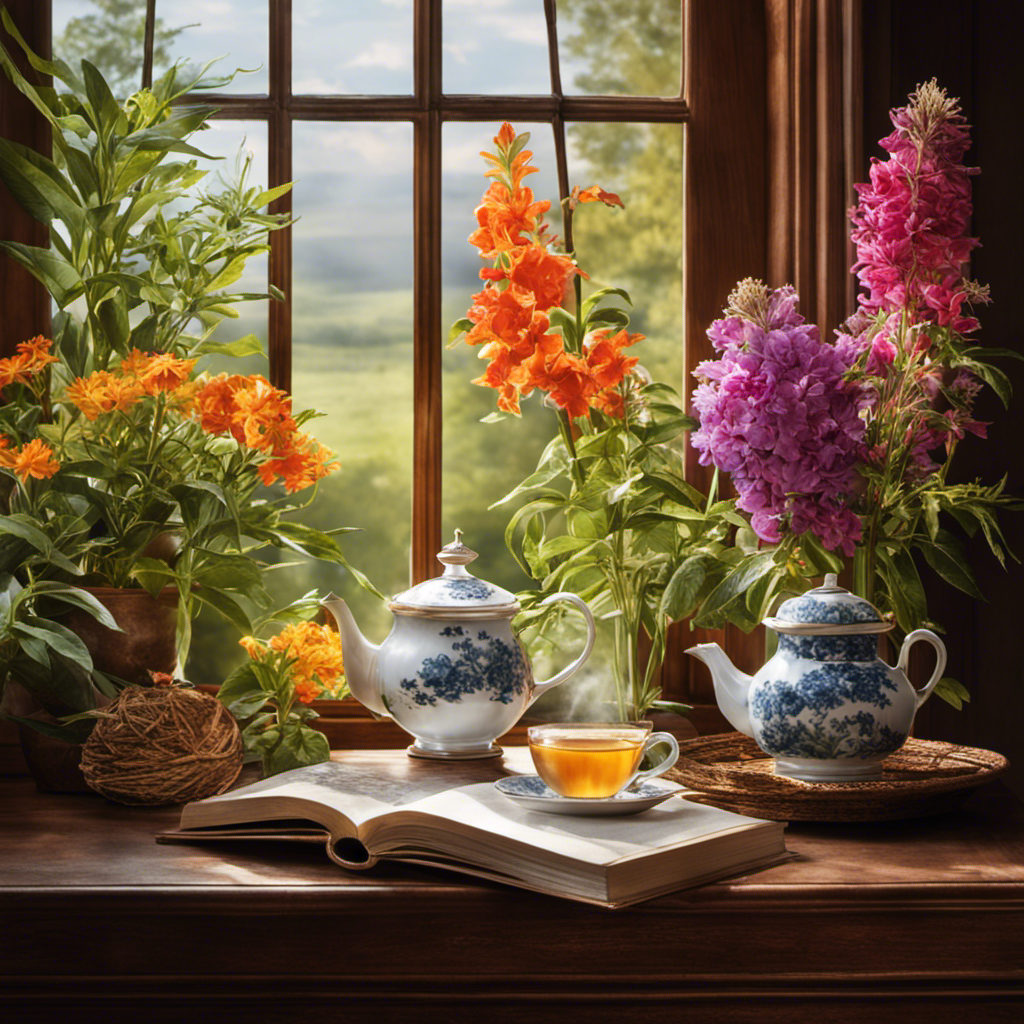
Sitting here with a steaming herbal tea in hand, I find myself utterly captivated by its soothing scent and how it gently warms my spirit.
There’s something truly magical about herbal tea – a natural elixir that offers a multitude of health benefits. From providing a natural source of energy to its vast variety of flavors and ingredients, herbal tea is a true powerhouse.
It’s a caffeine-free option that not only hydrates but also calms and relieves stress. As I delve deeper into the world of herbal tea, I discover its antioxidant properties, making it a true champion for my overall well-being.
And the best part? It’s a sustainable and environmentally friendly choice.
So, join me on this journey as we explore why drinking herbal tea is not just a healthier option but a delightful one that nourishes both body and soul.
Key Takeaways
- Herbal tea offers a flavorful alternative to plain water, while coffee can be more bitter and strong in taste.
- Herbal tea contains antioxidants that protect against free radicals, while coffee does not have the same level of antioxidant content.
- Herbal tea has calming and stress-relieving effects, promoting mental clarity and reducing anxiety, whereas coffee can sometimes increase anxiety levels.
- Drinking herbal tea supports sustainable farming practices and reduces the need for harmful pesticides and synthetic fertilizers, making it a more environmentally friendly choice compared to coffee.
Health Benefits of Herbal Tea
You’ll love how herbal tea can boost your overall health and well-being! Herbal tea is a wonderful natural remedy that offers a wide range of health benefits.
One of the key advantages of herbal tea is its ability to support the immune system. Certain herbs like echinacea and elderberry are known for their immune-boosting properties, helping to ward off colds and flu.
Additionally, herbal teas are rich in antioxidants, which help to combat free radicals and reduce inflammation in the body. They can also aid in digestion, relieve stress, and promote relaxation.
Unlike coffee, herbal tea is caffeine-free, making it a great choice for those who are sensitive to caffeine or looking to reduce their intake.
So why not swap your cup of coffee for a delicious and healthful cup of herbal tea? Your body will thank you!
Natural Source of Energy
With its invigorating properties, herbal tea provides a natural boost of energy, setting the stage for a productive day ahead. As a caffeine alternative, herbal tea offers a natural source of energy that can help us stay alert and focused without the jitters or crashes that come with coffee.
Unlike coffee, which contains high levels of caffeine that can lead to dependency and withdrawal symptoms, herbal tea harnesses the power of natural ingredients to provide sustained energy throughout the day. Ingredients like ginseng, ginger, and peppermint are known for their energizing properties and can help improve mental clarity and concentration.
Additionally, herbal tea is rich in antioxidants, which support overall health and vitality. So, why rely on coffee when you can experience a natural energy boost with herbal tea?
Variety of Flavors and Ingredients
Explore a world of tantalizing flavors and irresistible ingredients that will leave your taste buds craving more. Herbal tea offers a wide variety of flavorful blends that can satisfy any palate. From soothing chamomile to invigorating peppermint, there is a herbal tea for every mood and occasion. These teas are created by combining different herbs and botanicals, resulting in a unique and refreshing taste experience. Moreover, herbal teas are often made with natural ingredients that have been used for centuries as herbal remedies. This means that not only are you enjoying a delicious beverage, but you are also benefiting from the healing properties of these herbs. So why settle for a plain cup of coffee when you can explore the world of herbal tea and indulge in its flavorful blends and herbal remedies?
| Flavors | Ingredients | Benefits |
|---|---|---|
| Chamomile | Chamomile flowers | Calming and aids in sleep |
| Peppermint | Peppermint leaves | Refreshing and aids in digestion |
| Lavender | Lavender buds | Relaxing and helps reduce stress |
Antioxidant Powerhouse
When it comes to the antioxidant powerhouse of herbal tea, I can personally attest to its ability to fight free radicals and promote overall well-being.
The high concentration of antioxidants in herbal tea helps to neutralize harmful free radicals in the body, reducing the risk of chronic diseases.
Additionally, the diverse range of herbs and plants used in herbal tea provide a holistic approach to improving overall health, offering a natural and nourishing solution for optimal well-being.
Fights Free Radicals
Drinking herbal tea is a great way to combat free radicals and protect your body. Not only does herbal tea taste delicious, but it also contains powerful antioxidants that can help fight inflammation and boost your immune system. One of the main benefits of herbal tea is its ability to fight free radicals. Free radicals are unstable molecules that can damage cells and contribute to various diseases. By consuming herbal tea regularly, you can provide your body with a rich source of antioxidants that help neutralize these harmful molecules. To give you a better understanding of the antioxidant power of herbal tea, here is a comparison table showcasing the antioxidant content of popular herbal teas:
| Herbal Tea | Antioxidant Content | Benefits |
|---|---|---|
| Green Tea | High | Fights inflammation, supports heart health |
| Chamomile Tea | Moderate | Promotes relaxation, aids sleep |
| Rooibos Tea | Low | Soothes digestion, supports healthy skin |
By incorporating herbal tea into your daily routine, you can enjoy its many benefits and give your body the protection it needs against free radicals.
Promotes Overall Well-being
Incorporating herbal tea into your daily routine can leave you feeling rejuvenated and ready to take on the day. Not only does herbal tea offer a delicious and comforting alternative to coffee, but it also promotes overall well-being.
Herbal teas, such as chamomile and peppermint, have been used for centuries to support digestion and promote a healthy gut. These teas contain natural compounds that can soothe an upset stomach, relieve bloating, and even alleviate symptoms of irritable bowel syndrome. By promoting digestion, herbal tea can help you maintain a healthy and happy digestive system.
Additionally, herbal tea is rich in antioxidants, which can help boost your immune system. Antioxidants are known for their ability to fight free radicals in the body, reducing the risk of chronic diseases and boosting overall health. By incorporating herbal tea into your daily routine, you can give your immune system the support it needs to keep you feeling your best.
In summary, drinking herbal tea promotes digestion and boosts the immune system, making it a great choice for those looking to improve their overall well-being. So why not swap out your morning cup of coffee for a soothing cup of herbal tea? Your body will thank you.
Hydration Benefits
Sipping herbal tea is a delightful way to keep your body hydrated and nourished. Not only does herbal tea provide hydration benefits, but it can also aid in weight loss.
Unlike coffee, which can be dehydrating, herbal teas are made from plants and contain natural compounds that promote hydration. These teas are typically caffeine-free, allowing you to stay hydrated without any negative effects.
Additionally, certain herbal teas, such as green tea and oolong tea, have been found to boost metabolism and promote weight loss. These teas contain antioxidants called catechins, which can help increase fat burning and improve overall body composition.
So, if you’re looking for a refreshing and healthy way to stay hydrated and support your weight loss goals, herbal tea is the perfect choice.
Caffeine-Free Option
Indulge in the delightful embrace of a caffeine-free herbal elixir, soothing your senses and giving your body the nourishment it craves. When it comes to beverage options, caffeine alternatives can provide a soothing and calming experience.
Here are four reasons why choosing a caffeine-free herbal tea over coffee can be a wise choice:
-
Relaxation: Herbal teas like chamomile, lavender, and peppermint are known for their calming properties, helping to reduce stress and promote relaxation.
-
Improved Sleep: Unlike coffee, herbal teas don’t contain caffeine, making them a great choice for those looking to improve their sleep quality and quantity.
-
Hydration: Herbal teas are a great way to stay hydrated throughout the day, as they provide a flavorful alternative to plain water.
-
Antioxidant Boost: Many herbal teas contain antioxidants, which can help protect your body against free radicals and promote overall health.
Incorporating caffeine-free herbal teas into your daily routine can provide a soothing and nourishing experience, offering an array of benefits for both your mind and body.
Calming and Stress-Relieving Effects
When it comes to relaxing and unwinding, herbal tea is my go-to beverage. The calming and stress-relieving effects of herbal tea are well-known and have been supported by research. It helps reduce anxiety and promotes mental clarity, allowing me to feel more at ease and focused throughout the day.
Relax and Unwind with Herbal Tea
Kick back and let herbal tea help you unwind and relax. Herbal tea is a great way to create a calming routine and find moments of tranquility in our busy lives. When it comes to relaxation techniques and mindfulness practices, herbal tea can be a valuable tool.
Here are a few reasons why herbal tea is the perfect companion for relaxation:
-
Variety: There are countless flavors and blends of herbal tea to choose from, allowing you to find the perfect taste that helps you unwind.
-
Aromatherapy: The soothing aroma of herbal tea can have a positive impact on our mood and help us relax.
-
Ritual: Preparing a cup of herbal tea can become a mindful ritual, allowing us to slow down, focus on the present moment, and let go of stress.
So next time you need to relax and unwind, reach for a cup of herbal tea and let its calming effects wash over you.
Reduce Anxiety and Promote Mental Clarity
Immerse yourself in a soothing oasis of calmness and clarity with the gentle embrace of nature’s elixir. Herbal tea, a natural remedy, has been shown to reduce anxiety and promote mental clarity.
Unlike coffee, which can sometimes leave you feeling jittery and on edge, herbal tea contains compounds that have a calming effect on the mind and body. Research has found that certain herbs, such as chamomile and lavender, have anxiety-reducing properties, helping to relax the nervous system and alleviate stress.
Additionally, herbal tea can improve focus and mental clarity. The antioxidants found in herbal tea, such as catechins and flavonoids, have been linked to enhanced cognitive function and improved attention span.
So, if you’re looking for a beverage that can help you unwind and stay focused, herbal tea is the perfect choice.
Sustainable and Environmentally Friendly
Choosing herbal tea over coffee isn’t just a healthier choice, but also a more sustainable and environmentally friendly one.
When it comes to sustainable farming, herbal teas are often cultivated using organic and natural methods. Farmers use techniques like composting and crop rotation, which help maintain soil fertility and reduce the need for harmful pesticides and synthetic fertilizers.
Additionally, herbal teas are often packaged in eco-friendly materials such as biodegradable tea bags or loose leaf options that minimize waste.
By opting for herbal tea, you’re not only benefiting your own health but also supporting sustainable farming practices and reducing your environmental footprint.
So next time you reach for a beverage, consider the sustainable and eco-friendly option of herbal tea.
Frequently Asked Questions
What are some common herbal tea flavors and ingredients?
There are a variety of herbal tea flavors and ingredients, each with unique health benefits. Some popular types include chamomile for relaxation, peppermint for digestion, and ginger for immunity. Choose the one that suits your needs best.
How does herbal tea compare to coffee in terms of hydration benefits?
Herbal tea is equally hydrating as coffee, but with added benefits. While coffee can lead to dehydration due to its diuretic properties, herbal teas like chamomile and hibiscus can help maintain hydration levels and provide antioxidants for overall well-being.
Can herbal tea provide a sustainable and environmentally friendly alternative to coffee?
Herbal tea can provide a sustainable and environmentally friendly alternative to coffee. Its production requires less water, land, and energy compared to coffee, reducing the overall environmental impact.
Are there any potential side effects or risks associated with drinking herbal tea?
Potential health risks associated with drinking herbal tea include allergic reactions, interactions with medications, and contamination. Long-term effects are uncertain due to limited research, but moderation and consulting a healthcare provider can help minimize any potential risks.
How does herbal tea help in calming and relieving stress?
Herbal tea helps calm and relieve stress by promoting relaxation and reducing anxiety. It has been shown to improve sleep quality and enhance mental well-being, offering holistic benefits for relaxation and stress relief.
Conclusion
In conclusion, after exploring the numerous health benefits of herbal tea, it’s clear that choosing this beverage over coffee is a wise decision. Just like a gentle breeze in a serene meadow, herbal tea provides a natural source of energy without the jitters and crashes associated with coffee. Its variety of flavors and ingredients symbolize the diverse and holistic approach to wellness.
With its antioxidant power and hydration benefits, herbal tea truly nourishes both the body and the soul. So, why not sip on a cup of herbal tea and embrace a healthier, more sustainable lifestyle?
Noah, the Editor-in-Chief at Cappuccino Oracle, plays a pivotal role in shaping the voice and vision of our renowned platform. With an unwavering passion for coffee, coffee alternatives, and tea, Noah leads Cappuccino Oracle towards new horizons in the realm of coffee journalism.
Beyond his professional responsibilities, Noah serves as a mentor and guiding force for his team. His dedication to journalistic excellence and genuine love for coffee, coffee alternatives, and tea continue to inspire and motivate the Cappuccino Oracle family. In the ever-evolving world of these beverages, Noah’s leadership ensures that our platform remains at the forefront, delivering enlightening and enjoyable content to our readers worldwide.
-

 Espresso Machines Reviews3 weeks ago
Espresso Machines Reviews3 weeks agoDeLonghi Eletta Explore: A Comprehensive Review [2025]
-

 Espresso Machines Reviews4 weeks ago
Espresso Machines Reviews4 weeks agoILAVIE 20 Bar Espresso Machine Review (2025)
-

 Espresso Machines Reviews4 weeks ago
Espresso Machines Reviews4 weeks agoSUMSATY Espresso Machine Review (2025)
-

 Espresso Machines Reviews3 weeks ago
Espresso Machines Reviews3 weeks agoDeLonghi Magnifica S ECAM22.110.B Review: A Coffee Lover's Dream [2025]
-
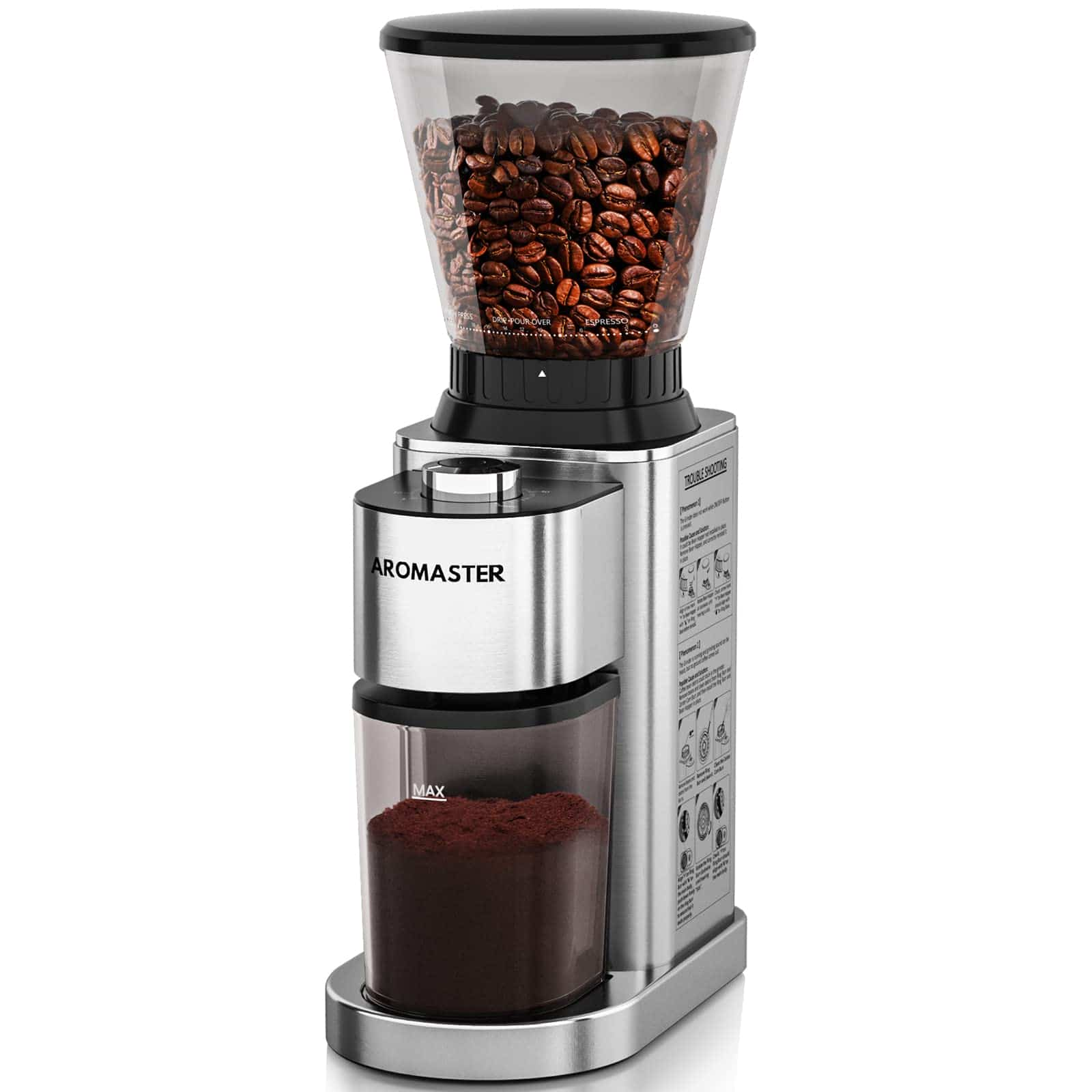
 Coffee Grinders Reviews4 weeks ago
Coffee Grinders Reviews4 weeks agoAromaster Burr Coffee Grinder Review (2025)
-

 Espresso Machines Reviews4 weeks ago
Espresso Machines Reviews4 weeks agoMAttinata Espresso Machine Review (2025)
-

 Espresso Machines Reviews4 weeks ago
Espresso Machines Reviews4 weeks agoCafe Bueno Super Automatic Espresso Machine Review (2025)
-
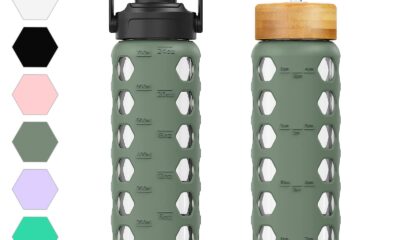
 Cappuccino Oracle Selected Reviews3 weeks ago
Cappuccino Oracle Selected Reviews3 weeks agoBest Glass Water Bottles for Eco-Friendly Hydration [2025]





